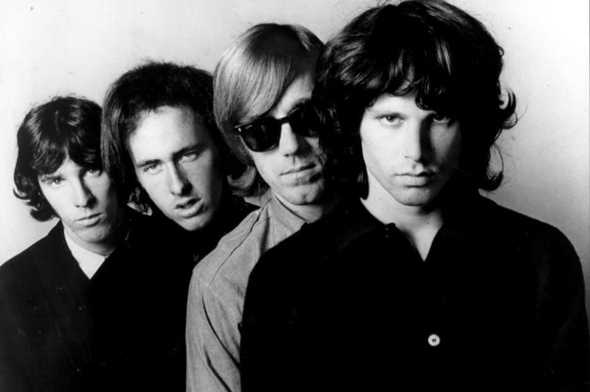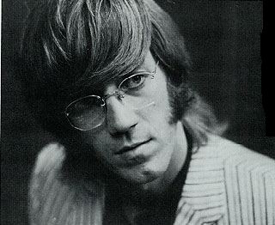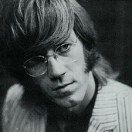
For music fans young and old, Ray Manzarek needs little introduction. In the late 60s, Manzarek co-founded and played keyboards in The Doors, who to this day remain one of rock and roll’s most influential bands. He’s written novels, directed films, and, at the age of 71, he’s still cooler than you are.
Manzarek’s salad days are the subject of the upcoming, award-winning documentary When You’re Strange, and, on February 28th, he’ll be bringing his roadhouse blues to San Diego for a gig at Anthology.
We sat down with Manzarek to discuss everything from fine wine to YouTube, and from Iggy Pop to Weird Al.
Owl and Bear: You live in Napa Valley now. Is it safe to assume you’re a big wine fan?
Ray Manzarek: Oh yes. Well we don’t grow it, but we certainly drink it.
Owl and Bear: Do you have any favorite wines you could recommend?
Ray Manzarek: Yes, Groth Sauvignon Blanc. It’s a nice light, crisp white. A little bit of fruit, a little bit of sweet, just a wonderful wine for a hot summer day in San Diego.
Owl and Bear: You were a film major at UCLA in the 60s, but you didn’t direct a movie until Love Her Madly in 1990. How did the actual experience of directing a film compare to what you had imagined it would be when you were in film school?
Ray Manzarek: It was a lot harder. You have to control a bunch of wild animals. Directing a movie is, as they say, like herding cats. You cannot herd a bunch of cats. That’s how it is directing a movie.

Owl and Bear: Does that apply to the crew or just the actors?
Ray Manzarek: Everything. The entire act of making a movie. The actors want to do what they want to do, the crew is off with a million questions, and you must answer all the questions and force your will on everybody. It’s difficult, quite difficult, but a lot of fun at the same time.
Owl and Bear: Do you have any plans to direct again?
Ray Manzarek: Perhaps, yeah, I’m thinking about it. We’re talking about putting a movie together of the book Snake Moon. I wrote a novel called Snake Moon, based on the Japanese movie Ugetsu, and it’s a ghost story that we set, not in Japan, but in the United States during the American feudal era, the Civil War. So it’s an erotic ghost story.
Owl and Bear: And you’re thinking of adapting it?
Ray Manzarek: It is, it’s all adapted, the script is written. We’re just waiting to get together with the right people.
Owl and Bear: From Jim Morrison to Iggy Pop, you seem to enjoy backing up theatrical front men and women. What do you think it is about these bombastic personalities that draw you to them?
Ray Manzarek: Well I’m such a reserved and quiet guy that they cater to my insane side that I try to keep under wraps.
Owl and Bear: The Doors’ music is ostensibly very adult, yet it seems to strike a chord with people at a surprisingly young age. For example, I first became interested in The Doors in 7th or 8th grade, and lots of people I know fell in love with the band at a similar age. What do you think it is about the music that appeals to people when they’re so young?
Ray Manzarek: My goodness, precocious fuck that you are. [Laughs] That’s good, man, good for you, because The Doors make music for college people. So if anybody younger than college age appreciates The Doors it’s a sign of an advanced intellect, a higher state of evolution. Perhaps a person who’s in the 7th, 8th, or 9th incarnation. It doesn’t appeal to all people, it only appeals to keener intellects. So, if you do like The Doors in 7th or 8th grade, put a feather in your cap. You owe it to yourself.
Owl and Bear: During the 60s, popular music seemed to serve as a sort of therapy for the nation, helping to exorcise the demons of the time, and of Vietnam in particular. The Doors’ music seemed to confront listeners with the chaos of the era. By way of contrast, pop music today seems to have regressed to a more juvenile, anti-confrontational state. Which approach do you think is better in the long run, and why do you think people’s approach to dealing with national strife has changed so drastically?
Ray Manzarek: Boy, I have no idea what’s happened, other than that the younger generation has all been distracted by their screens, by their electronic screens. Gosh, that’s all I can think of. Everybody is communicating with each other over Twitter and YouTube, and people are in a state of just constant communication and lack that solitary moment, that Zen moment, in which you can experience a oneness with all things. That’s what we did in the 60s.
Of course our experience was enhanced by certain psychedelic substances, to wit LSD, that opened the doors of perception in the human mind, and you see things as they are, as William Blake said: infinite. You become one with the universe.
And the constant jibber jabber of what’s going on today—it’s just a jibber jabber of information being fed into you—is a total distraction from finding the true oneness within yourself. And I can only hope that the younger people of today, and especially today’s college students, will stop for a second, put down all your communication devices, and open the doors of perception, and find the true self within. In fact, find the god within.
Owl and Bear: You’ve been playing your Doors material for going on forty years now. Which songs continue to, if you’ll pardon the use of the phrase, light your fire?
Ray Manzarek: Certainly when I play with Robbie [Krieger] and the full band, “Light My Fire†is the most fun to play because it’s constant improvisation, and you get those long solos, and you stretch those out and play as long as you want.
But I think when I play with Roy [Rogers], my favorite thing for the two of us to play together is “Riders On The Storm†because it’s just such a mood. It sets such a dark and moody mood that’s almost hypnotic and it’s a great joy to immerse yourself in the hypnotic mood of “Riders On The Stormâ€.
Owl and Bear: What about album-wise? Which Doors album do you still love to listen to?
Ray Manzarek: I’d have to go with the second album, Strange Days. That was my favorite album to do, to perform, to play in the studio because we went from four tracks to eight tracks. We had a super recorder with one inch of tape and eight tracks. So everything we did on the first album we could do on the second album, and still have four more tracks for experimentation.
So we just had the grandest time, and that was when Robbie and I learned to utilize a recording studio. Up until that time we were just novices. The first album is just straight ahead, Whiskey a Go Go, burning kickass rock and roll. But on the second album, we’re the mad scientists in the laboratory. [Laughs maniacally] So I love that album, that’s my favorite album.
Owl and Bear: Your recent collaboration with Weird Al for the song “Craigslist†makes it clear you’re not afraid to poke fun at The Doors’ legacy. Was the decision to participate in that type of self-parody an easy one to make?
Ray Manzarek: Oh sure, I mean, Jim would have loved it too. It’s a spot-on imitation, and it’s Weird Al paying homage and tribute to The Doors. Even though he’s doing a parody, that’s what Al does. Al is a parody, and a very funny guy. So I’m sure Jim would have absolutely loved seeing someone do such a spot-on imitation of him. He would have gotten a huge kick out of it, as I did.
Owl and Bear: In the Oliver Stone film The Doors, you were played by Kyle McLachlan. If a movie was made about you set in the present day, who would you like to have play you?
Ray Manzarek: In the present? I guess Harrison Ford could play me. He works out, he pumps iron and stays in shape. He’s a pretty organic, natural kind of guy. So I’d say that Harrison Ford plays Ray Manzarek, and vice versa. [Laughs] I could play him in The Harrison Ford Story!

Oh my god. So awesome.